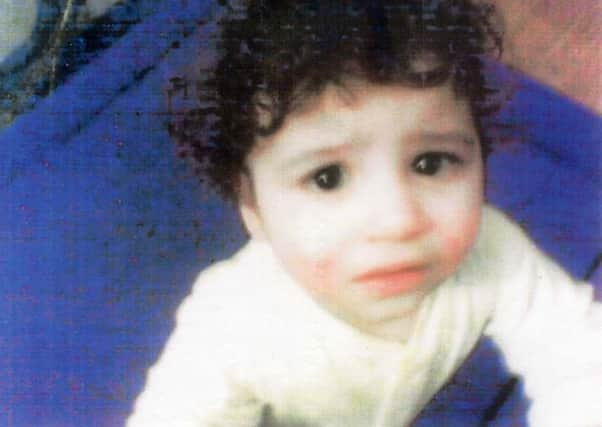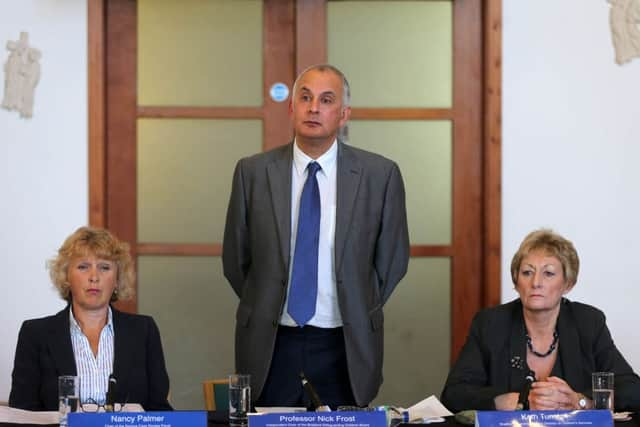Tragic child and siblings forgotten amid focus on mother’s problems


There were signs Hamzah Khan’s siblings were being neglected and not fed properly and some tried to raise their worries – yet decisive action was never taken.
The critical report reveals that two years before the death of Hamzah, an older brother made “very clear allegations of physical and emotional abuse” but police and social services disagreed on what to do.
Advertisement
Hide AdAdvertisement
Hide AdSocial services treated it as a conflict between a teenager and his parents, with police “clearly not in agreement with this response”.


The result was that he returned home.
It is one of several instances of missed opportunities raised in the serious case review.
A recurring theme was the failure of professionals to find out what the children were feeling.
“One of the most singular aspects of this case is the degree to which there is very little recorded information about the children and particularly in respect of what they were thinking, feeling or saying at critical points such as the incidents of domestic violence,” the report notes.
Advertisement
Hide AdAdvertisement
Hide Ad“Hamzah together with some of his other siblings who had not ever got to school literally disappeared from the view of their extended family and community as well as from the view of universal services such as education and health.”
It adds: “When one of the children, then an adolescent, did speak out about his unhappiness it was heard and probably misunderstood as being solely symptomatic of adolescent and parental conflict and tension.
“In this case there were specific occasions when some of the children expressed clear views and wishes that were given different inference by key services.”
In a damning assessment of the failure to listen, the report added: “None of the children’s views, wishes and feelings was given enough focus and priority even when some of the children explicitly sought help or came to the attention of support services.”
Advertisement
Hide AdAdvertisement
Hide AdDespite the mistakes, the report concludes that there was no information to suggest that any one individual had missed a chance to save Hamzah.
“The information considered does not point to single acts or omissions but rather a constellation of factors that contributed to the circumstances.”
It makes clear that professionals were not sufficiently curious about what was going in the family, in part due to “heavy workloads”.
The report admits one central question cannot be answered: “Neither the trial nor the Serious Case Review has satisfactorily reconciled how and why Hamzah’s disappearance for almost two years was not a matter or curiosity or inquiry for the father or any other adults in Hamzah’s family.”
Advertisement
Hide AdAdvertisement
Hide AdThe review team attempted to speak to both Hutton and Hamzah’s father, Aftab Khan, but it was not possible to speak with either, despite letters, telephone calls and texts.
The report also reveals that important information about the children was inaccurately recorded and poorly shared.
In July 2011 the children’s social care department was told of concerns about the “filthy home conditions” but this was never passed to a social worker or to a manager.
This was a “misunderstanding” by an unnamed worker who “believed that she had consulted and agreed and outcome with an unspecified social worker.”
But by this time Hamzah was already dead.
Advertisement
Hide AdAdvertisement
Hide AdSchools also failed in their duties to the children in 2010 and 2011, according to the report.
A school nurse noticed “chronic neglect” of one of the children in September 2011 – including severe tooth decay and weight loss – but there is no evidence it was discussed with the headteacher.
Professor Nick Frost, chairman of the Bradford Safeguarding Board, claimed “systems” had let Hamzah down.
“The review is very clear that Hamzah’s death could not have been predicted but finds that systems, some of them national systems, let Hamzah down both before and following his death.”
He agreed one of Hamzah’s siblings “could have been listened to more carefully” on two occasions.